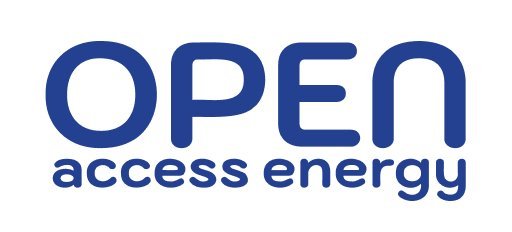In a landscape often dominated by headlines about South Africa’s energy grid challenges and Eskom’s influence, a new wave of innovation is emerging, changing the narrative one algorithm at a time. Open Access Energy, a startup based in Cape Town, is at the forefront of this transformation, developing essential software infrastructure for future energy flow management. Recently, the company secured a $1.8 million seed round, with investments from climate-focused firms like E3 Capital, Equator VC, and Factor[e] Ventures. This funding marks more than just financial success; it underscores a growing confidence in digital tools to modernize Africa’s power systems.
Open Access Energy aims to bridge the gap between policy ambitions and operational realities. With South Africa easing regulatory barriers and promoting private energy generation, producers face the challenge of efficiently transmitting power from decentralized sources to consumers. OAE’s platforms, Amptera and EnergyPro, address this by managing the logistics of electricity wheeling—transmitting power from private producers across public grids to consumers. These platforms offer features like automated metering, usage forecasting, and transaction tracking, facilitating smoother market participation.
For CEO Gerjo Hoffman, the goal is to eliminate long-standing barriers in the energy sector. “Energy liberalization requires visibility, accountability, and automation,” Hoffman states. “We are developing systems that allow private generators and municipalities to interact efficiently.”
This shift is timely, given South Africa’s energy crisis marked by frequent blackouts and infrastructure challenges. Recent reforms permit companies and communities to produce and trade electricity outside the traditional utility framework. However, the success of this decentralized model hinges on effective digital coordination.
Open Access Energy positions itself as a crucial player, orchestrating transactions, data flows, and grid interactions without the need for flashy hardware. From an investment standpoint, the company aligns with climate goals, scalable technology, and public policy. Investors see OAE’s potential to accelerate renewable energy adoption by bridging the operational gap between producers and consumers. “Software is the missing link in Africa’s energy transition,” notes an investor. “OAE is not just facilitating trade; it’s building trust in the system.”
Looking forward, Open Access Energy plans to expand throughout South Africa and explore new markets. With local governments, private solar farms, and corporate users seeking greater control over energy flows, smart infrastructure is becoming essential. As the grid evolves, those who can interpret data and streamline connections will shape its future. Open Access Energy is quietly positioning itself to play that pivotal role, one transaction at a time.


